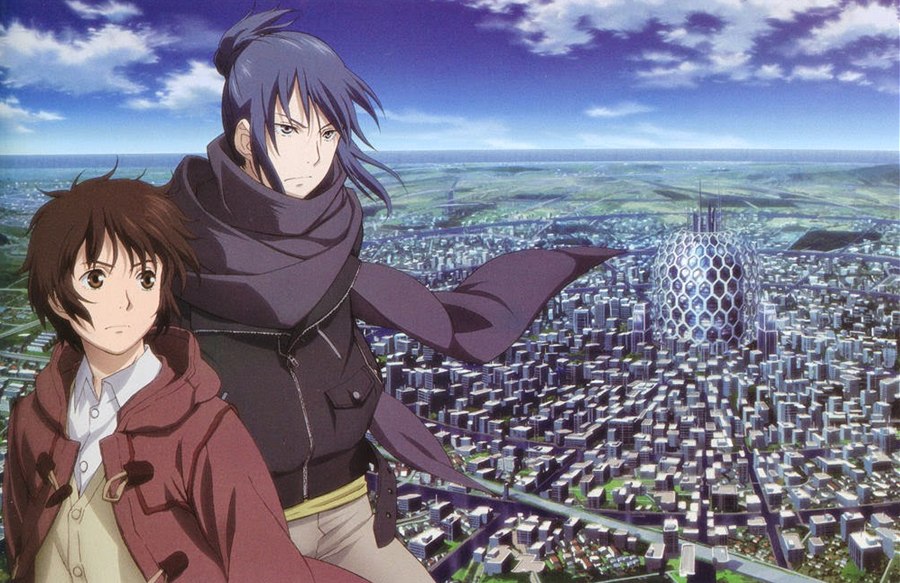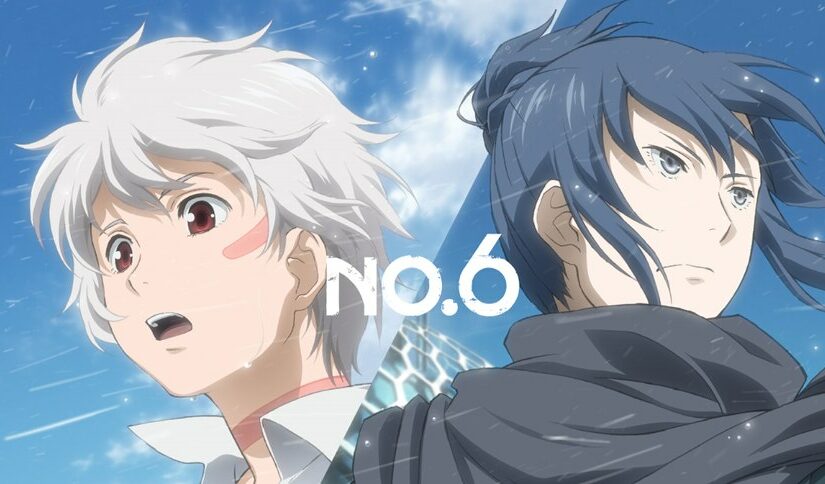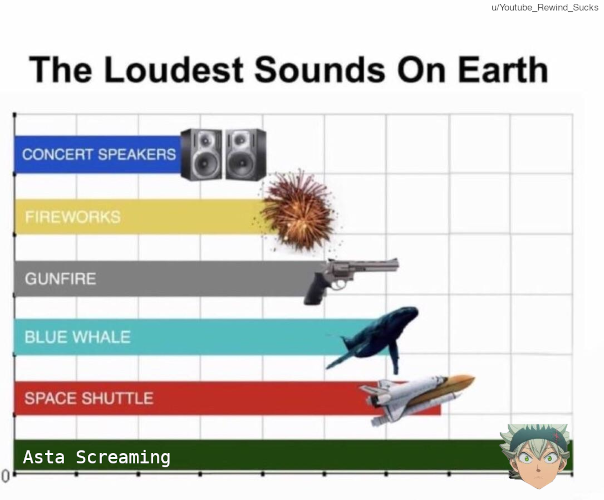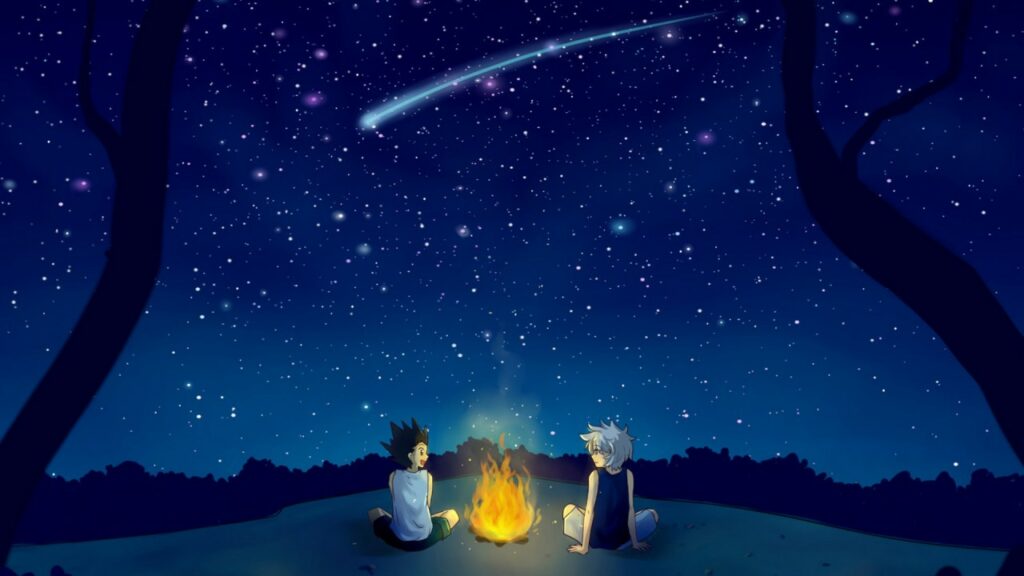I really loved this manga! The gay love interest between Shion and Rat provides a strong emotional backbone for the story. However, the story is more than just a coming of age/romance story. At its core, this is a sci-fi manga that covers the dystopian city of No.6. The plot was concise, and the pacing of the manga was excellent. The core set of characters were diverse and played really well into the setting. On top of all that, the artwork in this manga is top beautiful making it an enjoyable series to read.
No.6, in my opinion, touched on some of the same themes as Full metal alchemist. The leaders of No.6 became blinded by power and the scientific inquiry that they committed grave crimes in the name of a pure ideal– protecting the Holy City. No.6’s city leaders killed hundreds, silenced dissidence, and intruded on citizens’ freedoms to protect the city. There was the mad scientist that killed thousands in the name of protecting the city. Similar to the themes in Fullmetal Alchemist, ideals that are taken way too far leads to destruction. Zealous devotion to either science or faith leads to bad things. In No.6, Shion teaches people that there is a third option between destroying the city and keeping the status quo — i.e., between Rat’s drive for revenge and the city officials, killing people of the West district and their citizens. It is with Shion at the end of the Manga that begins to rebuild the city with No.6 and the west district. Building a city that respects nature and does not discriminate against people outside of the city or against people who disagree with the government.
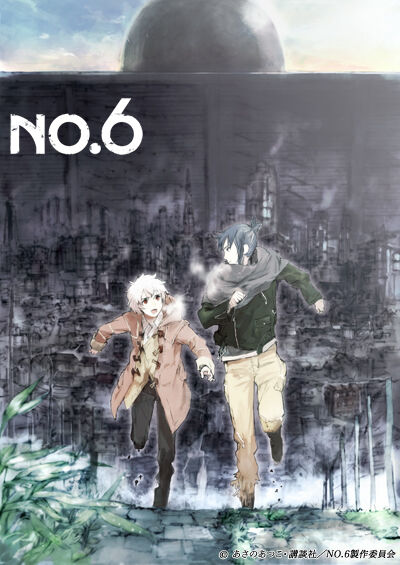
At the end of this story, I felt sad/happy/something, I almost broke into tears. It is sweet that Shion and Rat had a “Promise” kiss at the end, however, I wanted to see the two stay together and live happily ever after. Instead, Rat goes away to travel the unknown, and Shion is left in the city to rebuild. It was a happy ending, but… all that buildup for one kiss. I guess it leaves more for the imagination of what would happen in the future. I felt that way when I saw Gon and Killua separate at the end of the Hunger x Hunter anime. I know they would be reunited, but seeing them leave each other hurt.
Were Shion and Rat too different to remain together in the end? Rat said he was a wander, and Shion tended to cling to places. True, but Shion would have traveled, he said it himself, a life without you is a life not living. This manga was soo emotional, and the characters were captivating. Rat is the devious person with an air of mystery, and Shion being the pure sheltered person. Both characters change throughout the manga. Watching the mass murders changed Shion to the point where he ends up kills someone to save Rat. Rat changed from someone who only distrusts people to someone capable of love.
I think Shion and Rat’s characters bring up an interesting discussion about nature vs. nurture. Also, this can tie in with Dogkeeper’s character. These two were polar opposites in many regards. Shion being the light, having often naive ideals and outlook on the world. Shion was overly trusting of people, which put him in danger in West block. Was Shion “naive” way because of his upbringing? Being born in No.6, having a loving mother, never really facing any hardships, it is easy to say that this had a factor. However, even among the No.6 residents, Shion was particularly nice, even his mother was. It appears that most citizens in No.6 are nice in this way. What sets Shion apart from the rest of the citizens is that Shion is genuinely nice, where the rest of the citizens only put on a show facade of being good people. When he learned about the dark side of No.6, Shion fought it, where other residents just ignored it.
Rat is slow to trust, and he believes that the ends justify the means. Rat believes that destroying No.6 is worth it as long as it brings an end to the injustice that No.6 creates. Where Shion initially believed that bloodshed is always wrong no matter the cause. Rat doesn’t know exactly how to quantify Shion, often saying “is he even human” to himself. Maybe Rat believes that Shion is like an angel. Rat tries to protect Shion’s innocence. When at the correctional facility, Rat stops Shion from killing two different people. However, in the end, Shion ends up killing someone to save Rat’s life. The correctional facility changed Shion, after seeing a literal mountain of bodies, pain, and blood beyond imaginable, Shion changes. He doesn’t turn bitter and hate the world, but, he emerges as a man of action– proving to Rat that his words aren’t just shallow. At times throughout the Correctional facility, Shion almost kills himself. Once after seeing the mountain of bodies. Another time after Seeing the hologram of Safu and destroying Mother — the AI entity that NO.6 tried to create. After that misfortune, Shion became decisive and moved onwards. He stitched up Rat, and left an exploding building. Once rat was better, Shion and Rat didn’t go back to West Block to be safe, but instead went downtwon to put an end to the violence. Shion was able to calm the crowd and get Rat inside the Mayers office to stop Elyurias.
With all that said, nature vs. nurture? Are the people in No.6 better people since they had a better upbringing, or is their pompous upbringing at the cost of others in the west district bloody their hands? Most people in No.6 are innocent like Shion. Due to their environment, people in the West district commit crimes to survive– but does that make them bad people? These people are distrustful, like Rat. People like Rikiga (the old journalist turned porno mag) who is a sleazy drunk. Would all these people be different if they had the luxury of No.6? Dogkeeper puts on a hard exterior, but, on the inside, she is really a nice person. Interestingly, Dogkeeper was literally raised by Dogs– similar to Inosuke in Demon Slayer being raised by Boars. Characters like this only really work in fictional pieces. But, they illustrate how people born with nothing can still be good. I don’t think No.6 provides any clear answers but, it poses a good way of thinking about how your environment affects how people behave and what they value.
This isn’t the only Anime to bring up this idea. Older manga like Bleach dabbled with the problems with poverty– consider the Rukon district in the Soul Society. In Bleach, royalty was in more of a negative light than the lower class since they were completely disconnected from reality at times. In both Bleach and No.6, the lower class had more criminals but were at its core good people. Newer animes like Black Clover also look at social classes and how it huts the lower class. No.6, with its dystopian spin on things, makes this discussion a bit more salient.
Overall: highly recommend the read.
